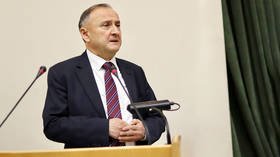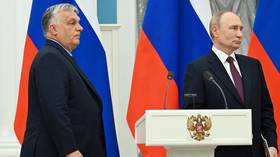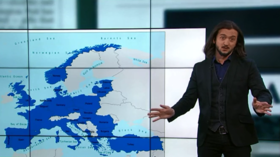BBC found in violation of Russian laws – watchdog
A Russian media watchdog has found ‘certain violations’ in activities of the BBC World News broadcaster in Russia. The probe into the broadcaster’s actions was launched in response to the British regulator’s ruling against RT.
British Television, a company broadcasting BBC World News in Russia, has been found in breach of Russian legislation, Roskomnadzor (RKN), the Russian media watchdog, said following an “unscheduled inspection.” It did not elaborate on the nature of the revealed violations but said that it “is assessing” their severity.
“Later, Roskomnadzor will provide further information about the measures taken [in light of these findings],” a watchdog official told the Russian media without providing a specific date or explaining what steps could be taken.
In early January, RKN demanded that the BBC provide documents on its compliance with Russian laws limiting control of foreign organizations over the media operating in Russia. The watchdog also launched a probe into the company’s compliance with the Russian broadcasting regulations.
On January 10, the Russian watchdog said it found some BBC online reports in breach of Russian anti-extremism laws as they contained some direct quotes of Al-Baghdadi, the head of Islamic State (IS, formerly ISIS) – something that is banned under a Russian law that prohibits the spreading of terrorist ideologies. “The probe is underway to check if these materials violate Russian anti-extremism law,” its statement said at that time.
Roskomnadzor initially launched its probe against the BBC back in December 2018. The measure was a result of mounting questions about the British broadcaster’s biased coverage of various events, Russian President Vladimir Putin’s spokesperson, Dmitry Peskov, said at the time. The Russian Foreign Ministry’s spokeswoman, Maria Zakharova, also said that the probe was “long overdue.”
The investigation was also launched after the British media regulator, Ofcom, found RT in violation of impartiality rules in seven cases out of ten it reviewed. The content in question was particularly related to RT’s coverage of the Salisbury poisoning in March 2018, which was critical of London’s handling of the case.
Ofcom’s allegations were refuted by RT’s Editor-in-Chief, Margarita Simonyan, who said that the regulators decision was apparently politically motivated.
Think your friends would be interested? Share this story!













